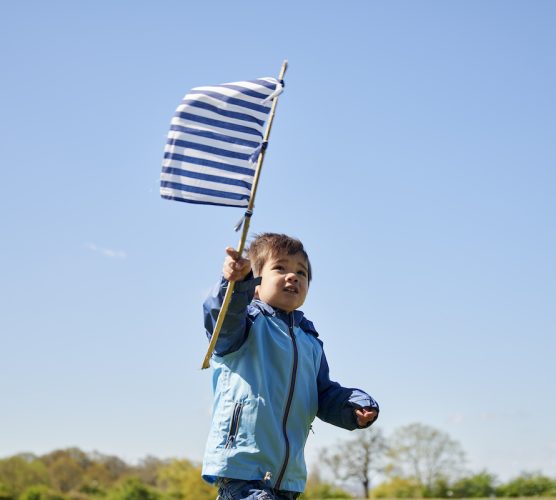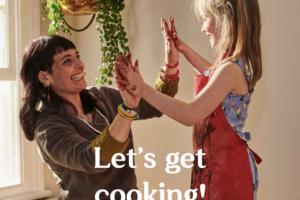Written by Rachel Carrell, Koru Kids Founder and CEO
How is the Koru Ethos delivered through great childcare?
The Koru Ethos is built on years of research and exploration. New Zealand’s Te Whāriki curriculum inspired our six children’s questions.
- Can I trust you?
- Do you know me?
- Do you help me fly?
- Can I find my path?
- Do you hear me?
- Is this place fair for us?
We believe 21st century childcare needs to deliver these six things for children to truly thrive. Each one is important at every age, and the latter ones get more important as children get older. Let’s go through each one.

Can I trust you?
Children need to feel 100% secure. This means physically safe and protected from harm, but also emotionally secure. It’s vital for their brain development. Until the age of three, a million neural connections are made in a child’s brain every second. Especially in the earliest days, children need consistency and security to lay the foundations of positive mental health for the rest of their lives.
Children’s emotional wellbeing needs to be nurtured through encouragement, warmth, acceptance and respect. Through a loving home environment or a ‘home from home’, comfort with rituals, customs and events, children develop trust as their identity and individual path emerges. They need to be accepted, supported as unique individuals, and assured that they belong.
Do you know me?
Children need to feel connected. They need to feel like they are known. Through connection with other children and adults, children develop skills of emotional literacy, social competence, empathy and kindness. As they grow, they experience the magic of friendship. Through connection, they learn to celebrate individuality and difference, and respect the identities and paths of their peers.
Do you help me fly?
Children need to grow physically and mentally strong in order to fly. For physical strength, they’ll need healthy food and lots of exercise, ideally outdoors. Outdoor settings can be both calming and, surprisingly, more stimulating. They also help children develop the ability to handle risk. For children to weather storms in their lives, they’re going to need strong internal armour. As their prefrontal cortex develops, so do their thinking and reasoning skills.
Children also need to become mindful, and fluent in the language of their feelings. This helps children learn self-regulation and perseverance—the building blocks of resilience and adaptability. This can be summed up in the word ‘grit’. Grit is really another word for persistence in the face of difficulty and uncertainty.

Can I find my path?
Children need time and space to explore. They have a natural curiosity and drive to experiment and inquire—anyone who has spent time with children will have noticed this. The more we can nurture and protect these instincts, the more children learn. We can encourage their interests, and help them discover what brings them joy.
If we can pull this off, children’s natural enthusiasm, creativity and imagination shine undiminished. Their confidence will grow as they explore their world ever more independently. They survive little moments of vulnerability, and they learn to be self-sufficient.
To get there, children need time and space to play. Play is under threat from busy schedules, and stressful environments, but evidence shows that play results in meaningful learning. Play—purposeless, voluntary, fun, improvised—lets children explore diverse experiences. It creates moments of safe risk taking. Playing with other kids helps children to develop empathy and practice relationships, teamwork, and conflict resolution.
Do you hear me?
Children need to be able to express themselves so they can be heard. They need to discover different ways to create, communicate, and develop confidence to express their ideas. We can help by truly listening, treating all behaviour as communication—which it is. We can also provide a language-rich environment, with opportunities for expressive arts.
Is this place fair for us?
This question looks outwards from the child and family into society. Children need to connect to a mission bigger than themselves. We want to empower young children to make a contribution to their community as they grow. As this sphere of influence expands, children develop their ability to make decisions on matters they care about. We can help develop children’s internal ‘locus of control’—how much they think that the world is within their control. That’s why we nurture their courage and advocacy skills, so they can speak on behalf of people who need it. We develop their sense of agency—their sense that they can do things. And we support their sense of responsibility—their sense that they should do things.
Who is the Koru Ethos for?
Who are we talking about when we talk about childcare? We think great childcare needs to serve four different groups, each with different needs—the child, the whole family, the carer, and society.

Childcare: Children first
We’ve thought a great deal about 20th century challenges, and what will be different in the 21st century. The modern world requires modern survival skills—the old certainties are gone. Our children’s future is likely to be challenging and chaotic. They will face a rate of change unprecedented in human history.
We all want our children to be healthy and strong, but they will also need to build relationships. Open-minded Early Educators help children connect with people different to them, with kindness and empathy. Academic and technical skills might come in handy—but only if children are creative, curious, and able to cope with whatever the future holds. To underpin that, they will need mental strength and resilience.
This is something that society often gets wrong, as we can see by the current epidemics of anxiety and depression among adults. Science tells us that positive mental health for adults starts in childhood. We can do much better for our children.
Childcare: The whole family
It’s not enough for childcare to be great for the kids. Childcare needs to meet the needs of the whole family, as the wellbeing of one member affects us all. Every human being needs a family, a group of people who love each other unconditionally, in order to flourish. And when we support families, we help everyone in that family.
Childcare: The carer
When we say ‘carer’, we mean anyone looking after a child that isn’t related to them—it could be a nanny, childminder, nursery practitioner, teacher, tutor, or family friend. Carers support children, and in turn, carers too need to be supported. They have to feel safe and confident in their role, and know who to ask for help. A kind, reliable carer is vital to a child’s development, and that’s why we invest so much time in finding the right people for our nanny service, and supporting them in their roles.
Childcare: Society
In the Koru Ethos, we also think that childcare is important for society. Families form society, families form communities, families form the world. We need our children to be able to contend with a more broken world than the one we inherited. There is a positive, tremendous opportunity for this new generation to build a fairer world. Great childcare needs to support children as agents of change in the world, building its future—hopefully a better one.

How can we help create this?
In the Koru Ethos, children are active agents, not passive recipients. This keeps their intrinsic motivation strong, and their path their own. Maybe their path is filled with maths, science, technology, cooking, engineering, languages, movement, or music! Whatever it is, we can help by giving them diverse opportunities, an empowering environment, and self-directed, unstructured time.
Developing all these things is a tough ask for parents to do alone. Parenthood is hard. Everyone knows that! Parents are dealing with economic anxiety, lack of government and family support, and huge expectations.
All the research and learning we’ve done over these years, based on all these schools of wisdom, has gone into the Koru Ethos—so our children can truly flourish in the 21st century. It’s the childhood we want for our own children. It’s the Ethos we want for our own children.



